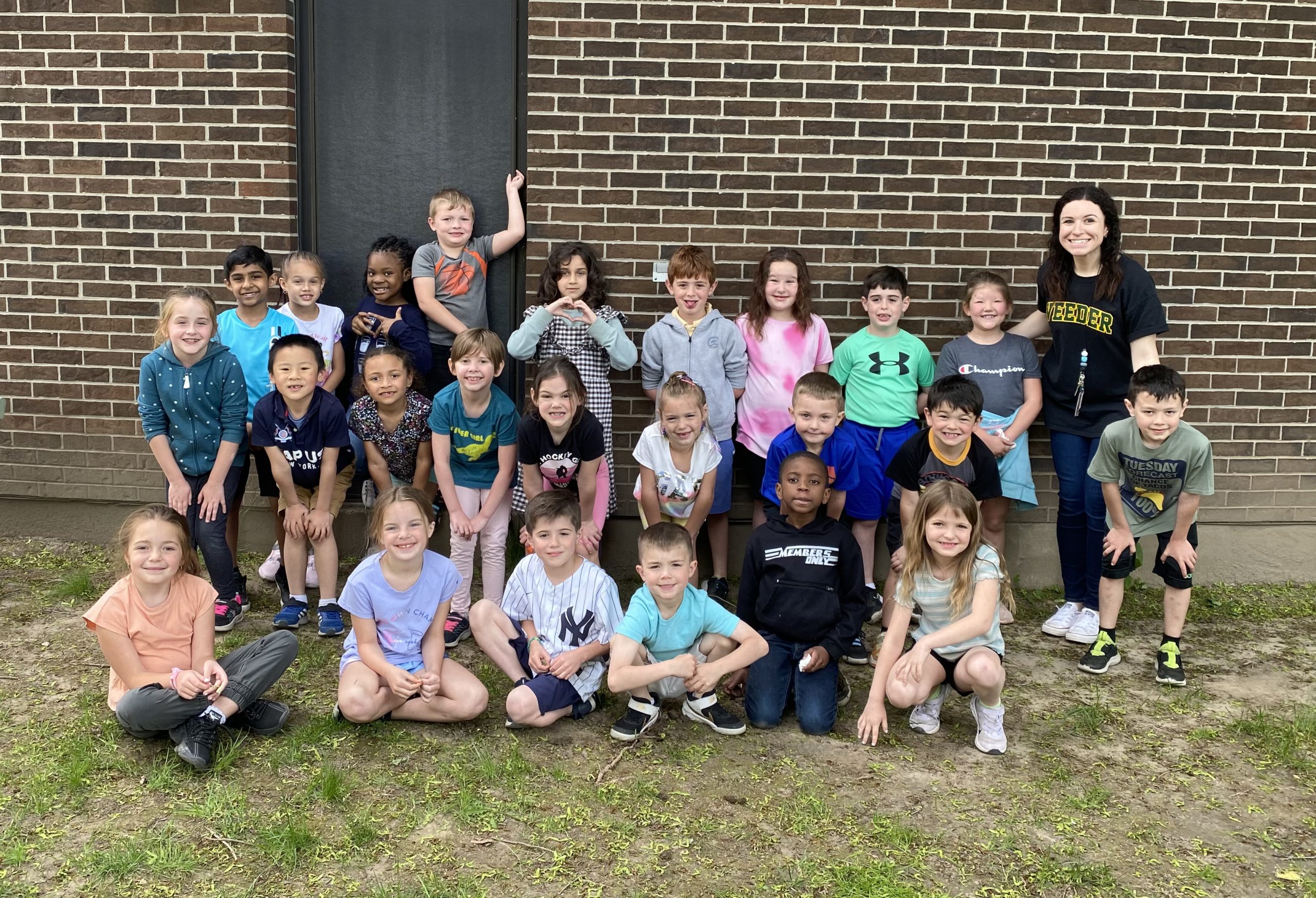
As the end of the school year quickly approaches, it is an exciting time to reflect on the past year and to imagine how the next year will go. A new school year can mean new teachers, new subjects, new buildings and sometimes even a new school district. Students set to graduate with the Colonie Central High School Class of 2023 will also be pursuing new experiences—the plans they made for after graduation.
Curious about the journey to becoming an educator? Wonder no more! Ms. Megin Guzior, a first-grade teacher at Veeder Elementary School, graciously opens up about her personal transformation from student to teacher.
The journey towards becoming an educator begins with a crucial decision: determining if teaching is the right career path. For Ms. Megin Guzior, her admiration for her own teachers and a profound love for education led her to choose this noble profession. When considering teaching, there are various options to explore, including selecting an age group and subject area to specialize in.
In Ms. Guzior’s case, she was captivated by the idea of teaching all subjects and cherishing the opportunity to spend the entire day with her students, rather than having them switch classrooms with each bell. This desire to create a comprehensive learning experience played a significant role in shaping her career aspirations.
“In first grade, they grow so much from September to June physically and academically. It’s so great to see the growth that they made,” she explained.
To become a teacher in New York, you must have a bachelor’s degree in teaching and your master’s degree before you are professionally certified. Guzior received her bachelor’s from SUNY Cortland and her master’s in literacy from SUNY Albany. While there, she worked on the other requirements needed to become a teacher in New York, like passing a series of examinations and getting the required hours of classroom experience.
During her undergrad at SUNY Cortland, Guzior gained classroom experience through the university’s teaching program. Assigned to different districts, she taught in both urban and suburban settings, including South Colonie and Schenectady.
As a student-teacher, she collaborated with Mr. Rich Thompson, teaching third grade in South Colonie. Guzior described the experience as an introduction to the teaching community, with both its dream-like and challenging aspects. Today, Guzior and Thompson teach together at Veeder, creating a full-circle experience where they can reflect on growth and share memories down the hallway.
There are also exams to take before you can become certified. Once you have your bachelors, you are ready for your Initial Certification. Candidates must pass the following three: the Educated All Students exam, the edTPA, and the Content Specialty Test.
“Fortunately it worked out that I was able to take some while I was still in my undergrad program,” said Guzior. She took her first exam during her junior year, and scheduled the rest out so she only had to manage one test a year.
Prior to taking the final exam to obtain professional certification, candidates must first earn their master’s degree. The professional certification also requires hopeful educators to spend some time in the classroom. Guzior was able to apply her student teaching time from SUNY Cortland to this, as well as worked as a substitute teacher while earning her masters.
Pro tip: “It’s good to stay focused on your end goal. I like to think of it as a mental checklist; my goal for undergrad is to get this done, or I want to take the certification exams by this date.” – Ms. Guzior
Now, Guzior is finishing up her fifth year of teaching in her own classroom at Veeder. To those looking to get into the career, Guzior encourages their pursuit
“It is the best profession that there is, it’s so rewarding and you work really hard. There is nothing that beats the school communities between the teachers that you work with, the families that you build relationships with, it’s an ever growing profession,” she said. She also notes that there are a lot of helpful people you meet along the way ready to assist you on your journey.
